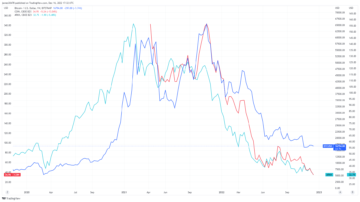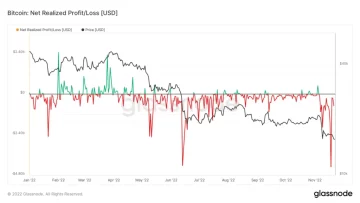
The United Arab Emirates’ Financial Services Regulatory Authority (FSRA) has updated its Anti-Money Laundering (AML) and sanctions rules by adding new provisions concerning digital assets, according to a press release issued on Dec. 21.
The revisions — effective immediately — are set to enforce the Financial Action Task Force’s (FATF) Travel Rule on digital assets, marking a critical step in the UAE’s stance on cryptocurrency regulation.
The updated AML rules are a response to the evolving nature of financial transactions in the digital age, where traditional frameworks often fall short in addressing the nuances of virtual asset transfers.
With this update, the UAE asserts its position as a leader in the crypto regulatory landscape, aligning with international standards to combat money laundering and terrorism financing effectively.
Travel Rule
A key feature of the updated rules is the explicit inclusion of the FATF’s Travel Rule. The FATF’s Travel Rule necessitates Virtual Asset Service Providers (VASPs) to gather and disseminate vital transaction data. This requirement aims to improve transparency and reduce the anonymity that has long been associated with digital asset transactions.
The enforcement of the Travel Rule is expected to increase accountability and traceability in cryptocurrency transactions, making it more challenging for illicit actors to exploit the system.
The revisions also impact a broad spectrum of entities, extending beyond traditional financial institutions to include designated non-financial businesses and professions.
This comprehensive approach ensures that various actors within the financial ecosystem are equipped to handle digital asset transactions securely and in compliance with global standards.
Legitimate payment method
Furthermore, the FSRA’s amendments clarify the definition of digital assets, recognizing them as a legitimate payment method. This move is seen as a step towards greater acceptance and integration of digital currencies in the mainstream financial system.
Industry experts view these updates as a significant step towards enhancing the regulatory framework in the digital asset space, addressing evolving challenges, and ensuring robust oversight.
The UAE’s proactive and adaptive approach to crypto regulation has been instrumental in attracting global businesses and talent, fostering a dynamic environment for innovation in the digital economy.
- SEO Powered Content & PR Distribution. Get Amplified Today.
- PlatoData.Network Vertical Generative Ai. Empower Yourself. Access Here.
- PlatoAiStream. Web3 Intelligence. Knowledge Amplified. Access Here.
- PlatoESG. Carbon, CleanTech, Energy, Environment, Solar, Waste Management. Access Here.
- PlatoHealth. Biotech and Clinical Trials Intelligence. Access Here.
- Source: https://cryptoslate.com/new-anti-money-laundering-regulations-in-uae-incorporate-fatf-travel-rule/
- :has
- :is
- :where
- a
- acceptance
- According
- accountability
- Action
- actors
- adaptive
- adding
- addressing
- age
- aims
- aligning
- also
- amendments
- AML
- and
- Anonymity
- anti-money laundering
- approach
- Arab
- ARE
- AS
- asset
- Assets
- associated
- attracting
- authority
- been
- Beyond
- broad
- businesses
- by
- challenges
- challenging
- combat
- compliance
- comprehensive
- concerning
- critical
- crypto
- Crypto regulation
- cryptocurrency
- cryptocurrency regulation
- currencies
- data
- dec
- definition
- designated
- digital
- digital age
- Digital Asset
- Digital Assets
- digital currencies
- Digital economy
- dynamic
- economy
- ecosystem
- Effective
- effectively
- enforce
- enforcement
- enhancing
- ensures
- ensuring
- entities
- Environment
- equipped
- evolving
- expected
- experts
- Exploit
- extending
- Fall
- FATF
- Feature
- financial
- Financial institutions
- financial services
- financial system
- financing
- For
- fostering
- Framework
- frameworks
- FSRA
- gather
- Global
- greater
- handle
- HTTPS
- illicit
- immediately
- Impact
- improve
- in
- include
- inclusion
- incorporate
- Increase
- Innovation
- institutions
- instrumental
- integration
- International
- Issued
- IT
- ITS
- jpg
- Key
- landscape
- Laundering
- leader
- legitimate
- Long
- Mainstream
- Making
- marking
- method
- money
- Money Laundering
- more
- move
- Nature
- New
- nuances
- of
- often
- on
- Oversight
- payment
- payment method
- plato
- Plato Data Intelligence
- PlatoData
- position
- Proactive
- providers
- recognizing
- reduce
- Regulation
- regulations
- regulatory
- regulatory landscape
- requirement
- response
- revisions
- robust
- Rule
- rules
- s
- Sanctions
- securely
- seen
- service
- service providers
- Services
- set
- Short
- significant
- Space
- Spectrum
- stance
- standards
- Step
- system
- Talent
- Task
- Terrorism
- terrorism financing
- that
- The
- Them
- These
- this
- to
- towards
- Traceability
- traditional
- transaction
- Transactions
- transfers
- Transparency
- travel
- Travel Rule
- UAE
- United
- Update
- updated
- Updates
- various
- vasps
- View
- Virtual
- virtual asset
- virtual asset service providers
- vital
- with
- within
- zephyrnet











